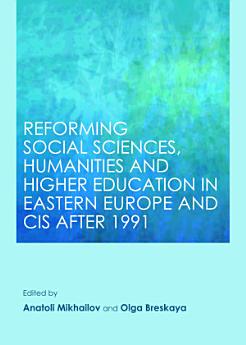Reforming Social Sciences, Humanities and Higher Education in Eastern Europe and CIS after 1991
About this ebook
The collapse of the communist system in Eastern Europe was followed by the enormous expansion of institutions of higher learning, especially in the field of social sciences and humanities. While responding to the great need of society for the education of urgently needed specialists in this area, most of the old and the newly established universities were confronted with a lack of professionals in this field. As a consequence, the overproduction of alleged specialists especially in subjects like law, business, management, and economics, has contributed to discrediting not only knowledge in these field, but also the value of education, consequently putting at risk the processes of transformation of post-totalitarian reality.
The book addresses itself to the issues of possible steps of reforming the educational and institutional space in the Eastern European Universities.
About the author
Olga Breskaya is Head of the Research Division of the European Humanities University and Associate Professor of Sociology in the Department of Social and Political Sciences. She holds a PhD in Sociology, and her research interests are in sociology of religion, culture, and transformation processes in the borderlands region of Eastern Europe. She is the author of the books: Political, Linguistic, and Religious Boundaries as Distinctive Creative Space: Why New Ideas are Generated in Border Lands (with Oleg Bresky, 2012), and Individual and Corporation within Public Space (with Svetlana Suveika, 2011, in Russian), and diverse articles on value analysis of social dynamics preconditions in Eastern Europe including: “University in Belarus: the Grounds and the Prospects” (Logic in Central and Eastern Europe History, Science, and Discourse, 2012).






